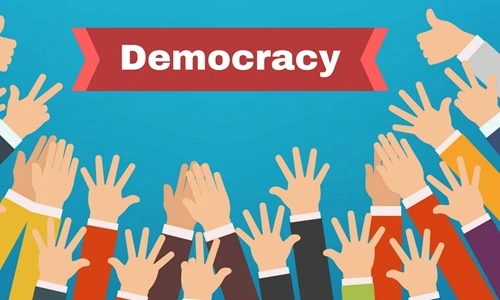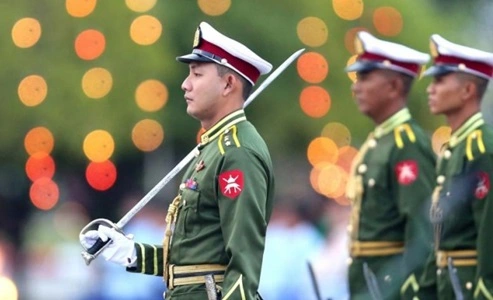Well, according to such a system, there is or should be only one political party that really matters, and there isn’t any real competition. It could be by the book, which means that the law only allows one political party, or it could be more about the vibe, meaning that there are other parties but they can’t really question the big boss, you know?
One-party systems give the ruling party a hand in everything. They control the government, the military, and every other important institution you can think of. With this strong grip, their policies will go into effect without a hitch and will face no resistance. Does this kind of system exist in reality? Yes, it does, and you can see the live example of that in countries like China, North Korea, and Cuba. There, the ruling parties have complete control over political life and government in these places. If you’re interested in politics, you need to know about a one-party system because it shows how a country can be run by a single powerful person or one single powerful political party. Let’s explore its pros and cons:

Advantages of a One-Party System
1. Quick Decision-Making
Have you ever thought about how cool it would be if choices were made that way? In a system with only one party, that’s almost what happens. No arguing back and forth for hours on end. Everything is about getting things done quickly! This simplified method changes everything, especially when time is short and action needs to be taken right away. There will be less red tape and more getting things done. The government will always be much more efficient and ready to take quick actions, always.
2. Rock-Solid Stability
And yes, with a one-party system, there isn’t a new leader every time you blink. The fact that things are stable is great for long-term plans and goals. What’s important is that the people in charge don’t have to think about the next election messing up their plans. For sure, it has been seen that political parties usually cancel out the policies set by the previous ruler party, but this whole one-party system thing brings less of that.
3. Consistency is Key
No one has to fight against the policies of the other party when there is only one in power. Everything is easier to understand, from national policies to development programs. The big plus? The whole country goes forward with the same goal, so there is less of the broken progress that happens in places with more than one political party.
4. Great Resource Management
Consider all the money and work political campaigning and elections demand. That’s all money preserved in a one-party system. Not necessary for expensive TV commercials every several years or those dazzling political billboards. Rather, the funds can be used for a lot of different things for the development of the nation, like roadways, hospitals, and schools directly. It’s all about wise use of your resources and channeling them into activities truly significant, you know?
5. Bringing Everyone Together
It’s interesting that a one-party system can help hold the country together. How exactly? Well, it brings everyone around a single national cause, therefore softening the divisions, you know, ethnic, regional, or religious ones. This unity is significant since it helps to create a more coherent society in which the emphasis is on what is good for everyone instead of only some.
Disadvantages of a One-Party System
1. Where’s the Choice?
In this case, the lack of political rivalry renders elections into little more than a scheduled routine check, you know? This configuration misses the rich tapestry of popular opinion, therefore widening the gap between the government and its people where many voices and interests hardly find any relevance or even consideration.
2. Silencing the Opposition
Different voices don’t only fight to be heard in a society when only one party rules; they often are crushed. Without any opponents, the ruling party may restrict any kind of criticism in order to maintain its hold on power unquestioned and for the long term. This might lead to significant abuses of human rights whereby everyone who dares to oppose might suffer terrible repercussions.
3. Corruption and Nepotism
Without a doubt, corruption and favoritism thrive in systems with only one party. For what reason? Because very few people, or sometimes even just one, have all the power. Leaders can put their own interests ahead of the general good when they are not accountable, which lets corruption grow like weeds.
4. A False Sense of Stability
On the outside, it may look calm and peaceful, but pressures are often building up below the surface. When groups are silenced, they might not stay quiet long. If they can’t find peaceful ways to voice their discontent, they might resort to more extreme actions. This suppressed anger can explode into social unrest or even rebellion, shaking the so-called stable system to its very core.
5. Way Too Slow Social Progress
The ruling party might get too comfortable if there aren’t any other groups to push them to the limits. What’s the point of trying to do better if no one is watching? A lack of drive to create new ideas or make things better can cause policies to stay the same and not adapt to new situations, which slows down social and economic growth.
6. A Short Step to Dictatorship
A one-party system can rapidly turn into a complete dictatorship without checks on power. One party or leader’s concentration of power can set off a power that sidelines democracy and just ignores personal liberties and rights.
Quick Advantages and Disadvantages of One Party System
| Advantages | Disadvantages |
| Fast Decision-Making due to lack of opposition | Limited Choice in elections |
| Strong Stability as leadership remains constant | Suppression of Opposition voices, potentially leading to human rights abuses. |
| Consistent Policies with no conflicting party agendas | High Risk of Corruption and nepotism |
| Efficient Resource Use by avoiding costly elections and campaigns | Illusion of Stability with underlying societal tensions that can lead to unrest |
| National Unity around a single cause, reducing ethnic | Slow Social Progress due to lack of competitive pressure |
| Potential for Dictatorship with unchecked power |


